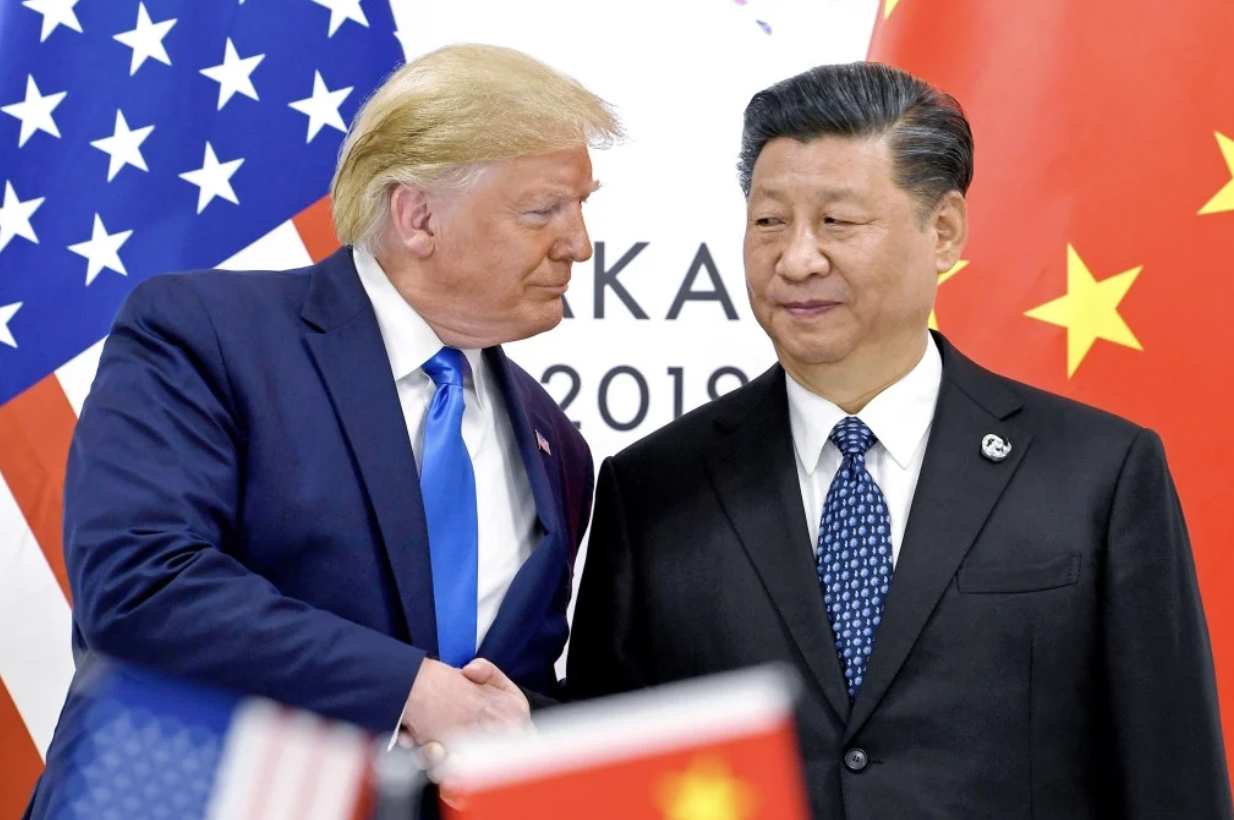Photo via South China Morning Post
***
America is often faced with the choice of whether to enact policy to benefit her own citizens or to maintain her empire abroad. Often it chooses the latter.
On Friday, October 10th, President Trump announced an additional 100% tariff on Chinese imports and new export controls on critical software products. This announcement followed the Chinese government’s own announcement of export controls on rare-earth minerals. In response to the news, the S&P 500 dropped 2.70% on the day, while chip makers like Nvidia and AMD dropped over 4.85% and 7.72% respectively. Furthermore, Wall Street’s fear index, the VIX, jumped over 30%. The market is not a fan of uncertainty, and an escalating trade war creates a lot of unknowns.
Economists ranging from the Austrian school to the Keynesian school generally agree that tariffs are an economic negative. In fact, Henry Hazlitt dedicated 10 pages in his work, “Economics in One Lesson,” arguing against tariffs. He argues that tariffs are an economic negative because they are a tax and, like all taxes, distort the allocation of resources. By raising prices of imported goods, tariffs shift domestic consumption towards domestic products, even when they are inferior to their foreign counterparts. While in the short run this may benefit “protected” industries, over the long term, consumers will suffer as domestic firms are less incentivised to innovate and prices are raised.
So why would President Trump enact a policy that’s so counterproductive to American interests? There are two possibilities. Either the Trump administration believes tariffs are intrinsically beneficial for the American economy, or tariffs are being used as a tool for something else.
The Trump administration is staffed with some very intelligent people. Treasury Secretary Scott Bessent worked alongside hedge-fund titans George Soros and Stanley Druckenmiller to break the Bank of England when he was only 30 years old. The administration is not staffed with people who lack an understanding of economics. To understand the Trump administration’s infatuation with tariffs, they must be viewed in the context of the current great power conflict between the U.S. and China.
Secretary of State Marco Rubio best summarized the previous 30 years of American foreign policy in his opening remarks before the Senate Foreign Relations Committee. He argued that, for the past 30 years, American foreign policy has been guided by the illusion that history had ended with the triumph of liberal democracy, that nations would abandon sovereignty and submit to a global, “Western-led community.” This “dangerous delusion” led to countless foreign policy failures and has enabled the rise of China.
In the natural struggle for global control, it was inevitable that America would face a new peer competitor. In 2013, Professor John Mearsheimer predicted in his lecture, Can China Rise Peacefully?, that the rise of China would eventually lead to conflict. China’s attempt to seek regional hegemony in East Asia comes in direct conflict with the goal of the United States to maintain global hegemony.
If we view the world through this lens, then it’s much easier to understand the moves the Trump administration is making. Just as the U.S. sought to contain the influence of the Soviet Union during the Cold War, it is now attempting to constrain the Chinese from expanding their control. Trump’s China policies: tariffs, export bans, and technological competition are part of a greater decoupling. They are an attempt to rebalance the chessboard in favor of the United States.
It remains to be seen whether the Trump administration’s strategy is the correct one, but it is important to understand the rationale behind it. Trump’s approach reflects a broader American realignment towards the realist school of international relations. Despite what his critics may say, at his core, Trump is not an isolationist, nor is he a Wilsonian interventionist looking to spread democracy and liberalism across the globe. He is a businessman. Trump’s foreign policy lacks a principled vision for the world; instead, its sole principle is “how can this benefit the United States?” We may disagree with decisions our political leaders take, and when we do, we should speak out. But it is also our duty to understand the actions they are taking, why they are taking them, and how they will affect us.
Tariffs are an economic negative, yet they may be essential to save the American Empire. So Pat Buchanan’s question still stands: Is the empire worth the cost? Do we want to be a republic, or will we continue down the path of empire?
***
This article was edited by James Dougherty and Esme Carson.
